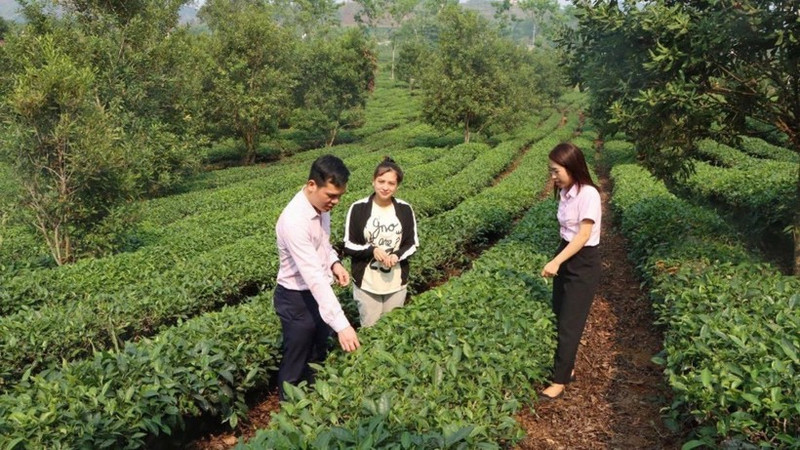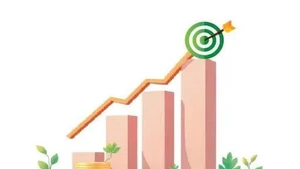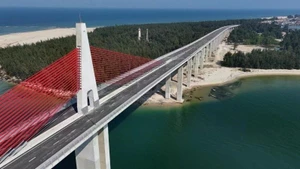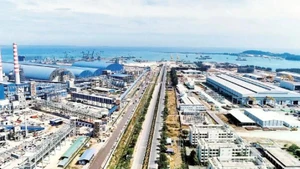Twenty years ago, Son La was among the seven poorest provinces in the country. Today, this once-remote land in the heart of the vast north-western region has undergone positive and continuous transformation, turning hardship into opportunity and achieving notable success across many sectors — particularly in the effective implementation of sustainable poverty reduction programmes, which have helped improve and uplift the lives of its residents.
Mobilising comprehensive strength
In recent years, Son La province has channeled all available resources into development, identifying policy credit capital as a primary driver of investment in remote, isolated and ethnic minority areas. This has enabled poor households and other policy beneficiaries to expand their production, increase incomes and improve living conditions. As a result, the provincial poverty rate has fallen from 21.66% in 2021 to 11.11% in 2024, meeting the set target. The poverty rate among ethnic minorities dropped from 21.34% in 2021 to 10.9% by the end of 2024.
Alongside the reduction in poverty, over the past three years (2021–2024), policy credit programs in Son La have extended preferential loans to more than 141,000 customers, with total disbursements exceeding 6,700 billion VND. These loans have focused on programs for poor, near-poor, and newly escaped-from-poverty households; job creation; and support for family-run businesses in disadvantaged areas. Timely disbursement of these funds has enabled poor districts such as Thuan Chau and Sop Cop to invest in the construction of 55 different infrastructure projects, and to repair and maintain 85 public works including roads, clean water systems, irrigation, cultural houses and suspension bridges.
Le Hong Phong, Vice Chairman of Thuan Chau District People’s Committee, stated: “From policy credit sources, the district has prioritised investment in the 13.72km Long He – Phong Lap inter-communal road, designed to ensure seamless transport connectivity between local communes.”
Indeed, the decisive and comprehensive implementation of policy programs by the Party and the State in sustainable poverty reduction has created new momentum for the development of policy credit operations.
According to Hoang Xuan Truong, Party Cell Secretary and Director of the Son La branch of the Viet Nam Bank for Social Policies (VBSP), since its establishment in 2003, the branch has focused on mobilising all resources and ensuring the safe and timely transfer of the State’s preferential capital sources, making it easier for people to access the bank’s full range of services. To date, entrusted capital sources exceed 280 billion VND, contributing to a total loan portfolio of 7,246 billion VND in the province — an increase of 427 billion VND compared to 31 December 2024.
A pillar of poverty reduction
Alongside innovations in lending methods, the Son La branch of the VBSP has also focused on building and improving the operational quality of its commune-level transaction points and a vast network of 3,769 savings and credit groups across villages and residential areas.
With such broad coverage, every low-income resident can now access preferential policy capital. For example, the family of Toang Van Than in Khang hamlet (Ma Pha Khinh commune, Quynh Nhai district) was previously classified as poor. In 2021, they received a loan from VBSP to buy four breeding cows. In addition, the family cultivated nearly one hectare of maize to produce feed for six goats and two sows.
“After three years, our cow herd has now grown to eight. Thanks to the loan, in 2024, my family escaped poverty, now has a proper house, and can afford to send both children to school,” Than shared.
His family’s story is not unique. In Quynh Nhai district, since 2021, local authorities have encouraged ethnic minority communities to confidently access preferential loans for raising livestock, cage fish farming, and cultivating fruit trees and medicinal herbs.
On a broader scale, data from the Son La branch of VBSP shows that, as of May 31, total outstanding loans under policy credit programmes exceeded 7,159 billion VND, with more than 122,000 households holding active loans. This source of credit continues to play an effective role in poverty reduction, new-style rural development, and ensuring social welfare in the province.
It can be affirmed that policy credit provided by VBSP has become a pillar in the implementation of socio-economic development programmes and sustainable poverty reduction strategies in mountainous Son La province. Ethnic minority communities in remote, highland and border areas are increasingly placing their trust in the policies of the Party and State — and in the dedication of policy credit officers who accompany them.
















